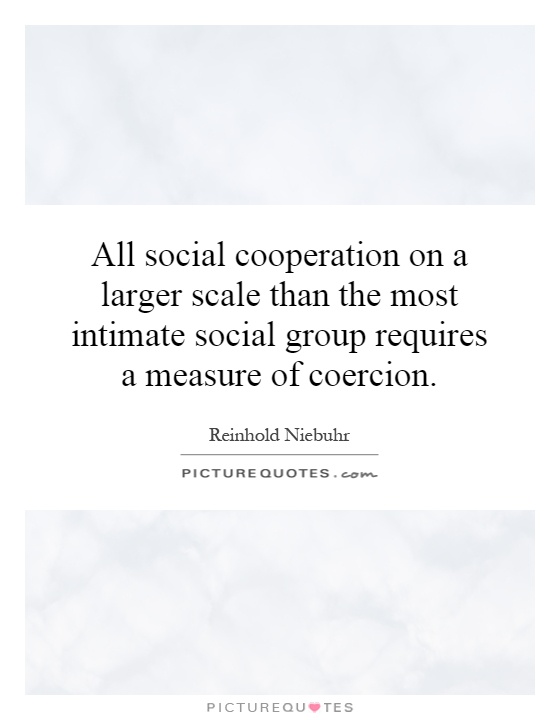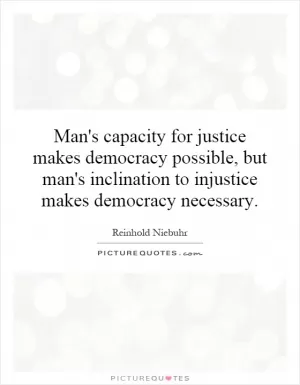All social cooperation on a larger scale than the most intimate social group requires a measure of coercion

All social cooperation on a larger scale than the most intimate social group requires a measure of coercion
Reinhold Niebuhr, a prominent theologian and political thinker, believed that all social cooperation on a larger scale than the most intimate social group requires a measure of coercion. This idea is central to his understanding of human nature and the complexities of social organization. Niebuhr argued that human beings are inherently flawed and selfish, and that without some form of coercion, individuals would not be able to cooperate effectively in larger social groups.Niebuhr's belief in the necessity of coercion in social cooperation is rooted in his understanding of the nature of power and the dynamics of social relationships. He recognized that power is a fundamental aspect of human society, and that it is often necessary to use coercion to maintain order and stability. Without some form of coercion, Niebuhr believed that individuals would be unable to overcome their selfish desires and work together for the common good.












 Friendship Quotes
Friendship Quotes Love Quotes
Love Quotes Life Quotes
Life Quotes Funny Quotes
Funny Quotes Motivational Quotes
Motivational Quotes Inspirational Quotes
Inspirational Quotes